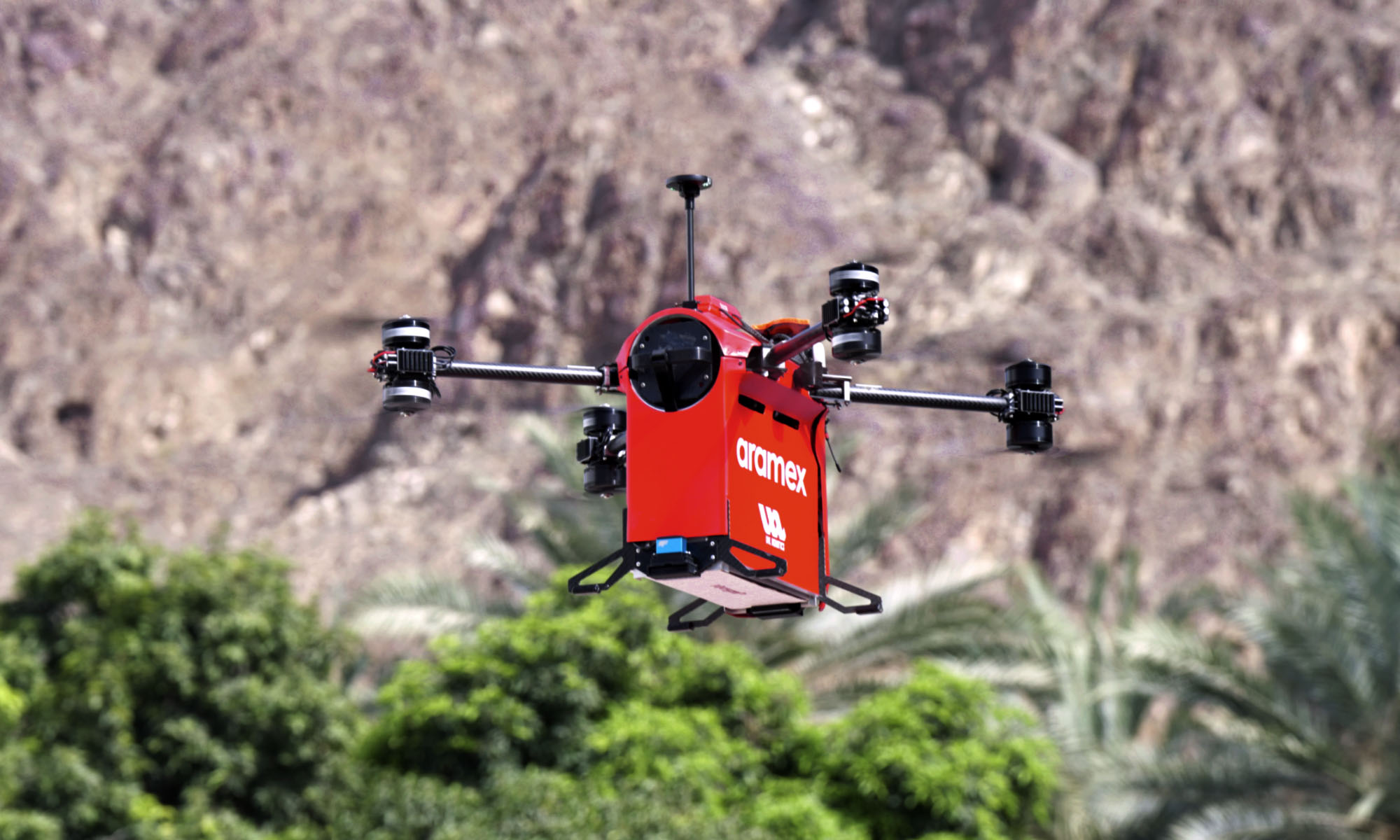News
Aramex Has Successfully Tested Drone Deliveries In Oman
The pilot is part of Aramex’s “Future Delivery Program”, and forms part of the company’s innovation agenda and sustainability strategy.

Aramex is a leading transport and logistics organization, and this week, the company successfully finished the pilot phase of its drone-based “Future Delivery Program” in Muscat, Oman.
UVL Robotics, a company from the United States, partnered with the logistics firm to bring its class-leading AI and drone solutions to the project, which will eventually also include autonomous vehicles. The Future Delivery Program is about creating cost-based savings and reducing environmental impact by lowering carbon emissions and traffic congestion during the last-mile section of deliveries.
Aramex is already embarking on a full-scale transition to electric and hydrogen fuel cell vehicles, with drone and autonomous vehicle-based deliveries complementing the emission-free fleet.
“We believe the next generation of last-mile solutions, including drones and autonomous vehicles, will be a game-changer as it ensures efficient delivery while being eco-friendly […] We have proven that these automated modes of delivery will enable us to further enhance the speed, accessibility, and reliability of package deliveries, especially to remote areas with hard-to-reach terrain,” says Alaa Saoudi, COO, Express at Aramex.
Eventually, Aramex will expand its autonomous delivery program across the Middle East and test the technology in other key markets. The company aims to significantly shorten delivery times and boost customer satisfaction while doing as much as possible to aid with climate action as we approach 2030 sustainability goals.
Also Read: Wisk Aero Unveils Four-Seat Autonomous Air Taxi
“We strongly believe that last-mile delivery by drone is an important part of future logistics and one of the key goals in our business sustainability strategy. Drones produce 26 times less CO2 emissions than cars, which positively impacts the region’s ecology,” says Moosa Al Balushi, Regional Director for UVL in the MENA Region.
Aramex isn’t new to the use of modern technology. The firm has been testing electric vehicles and adopting them into parts of its service since 2017, with operations in Jordan using EVs and testing going on across Saudi Arabia, UAE, and Egypt.
News
Samsung Smart Glasses Teased For January, Software Reveal Imminent
According to Korean sources, the new wearable will launch alongside the Galaxy S25, with the accompanying software platform unveiled this December.

Samsung appears poised to introduce its highly anticipated smart glasses in January 2025, alongside the launch of the Galaxy S25. According to sources in Korea, the company will first reveal the accompanying software platform later this month.
As per a report from Yonhap News, Samsung’s unveiling strategy for the smart glasses echoes its approach with the Galaxy Ring earlier this year. The January showcase won’t constitute a full product launch but will likely feature teaser visuals at the Galaxy S25 event. A more detailed rollout could follow in subsequent months.
Just in: Samsung is set to unveil a prototype of its augmented reality (AR) glasses, currently in development, during the Galaxy S25 Unpacked event early next year, likely in the form of videos or images.
Additionally, prior to revealing the prototype, Samsung plans to introduce…
— Jukanlosreve (@Jukanlosreve) December 3, 2024
The Galaxy Ring, for example, debuted in January via a short presentation during Samsung’s Unpacked event. The full product unveiling came later at MWC in February, and the final release followed in July. Samsung seems to be adopting a similar phased approach with its smart glasses, which are expected to hit the market in the third quarter of 2025.
A Collaborative Software Effort
Samsung’s partnership with Google has played a key role in developing the smart glasses’ software. This collaboration was first announced in February 2023, with the device set to run on an Android-based platform. In July, the companies reiterated their plans to deliver an extended reality (XR) platform by the end of the year. The software specifics for the XR device are expected to be unveiled before the end of December.
Reports suggest that the smart glasses will resemble Ray-Ban Meta smart glasses in functionality. They won’t include a display but will weigh approximately 50 grams, emphasizing a lightweight, user-friendly design.
Feature Set And Compatibility
The glasses are rumored to integrate Google’s Gemini technology, alongside features like gesture recognition and potential payment capabilities. Samsung aims to create a seamless user experience by integrating the glasses with its broader Galaxy ecosystem, starting with the Galaxy S25, slated for release on January 22.
























